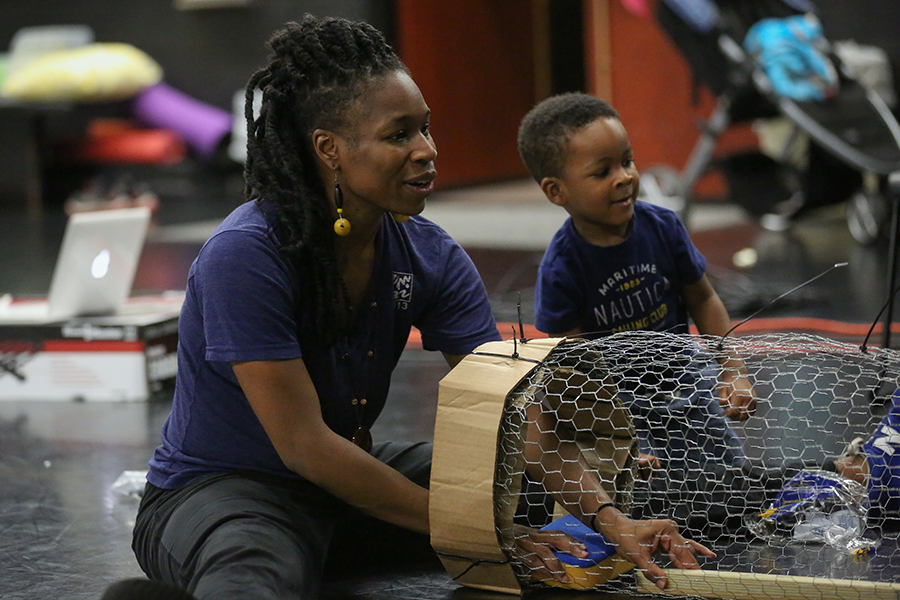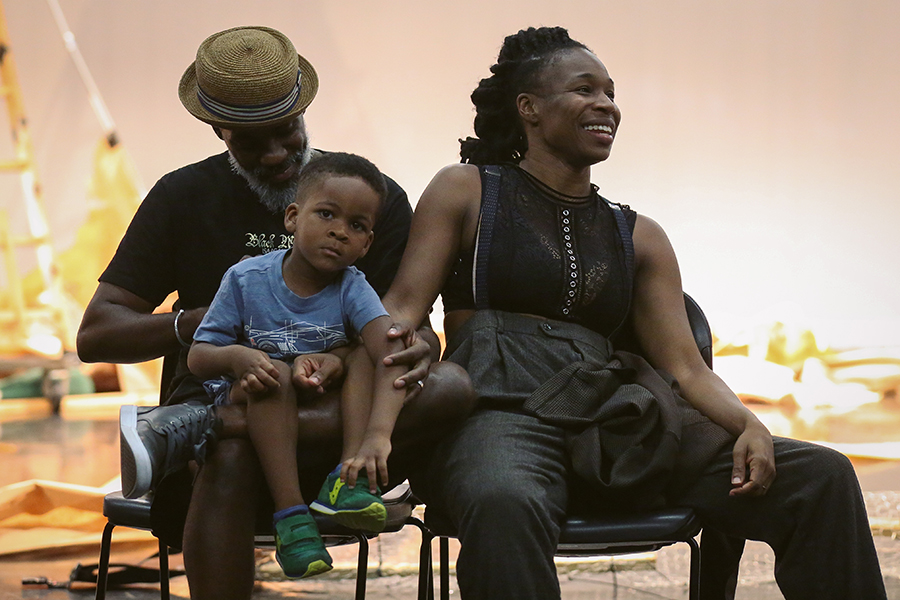
The Florida State University Maggie Allesee National Center for Choreography (MANCC) has received renewed funding from the Sustainable Arts Foundation (SAF), which supports working artists and their childcare needs for 2021.
“I am very pleased that we will again be able to engage a broader range of artists by providing access to childcare,” said James Frazier, dean of the College of Fine Arts. “Dance artists with young children are often restricted in their abilities to participate in residencies. It gives me great joy that those individuals who are invited here to the FSU Maggie Allesee Choreographic Center can be supported in this important way.”
MANCC is a dance and choreographic research center, housed within the School of Dance at FSU. Since its founding in 2004, MANCC has served as a residency incubator for new and diverse artist voices in dance. The center is renowned for its full support of artists, typically providing travel, hotel, artist fees, space and staff assistance and has always been committed to supporting parent artists in various ways. This funding will allow for more robust support.
“MANCC is thrilled to once again receive this important source of funding that allows us to further our support of parent artists,” said Carla Peterson, director of MANCC. “After years of being aware of this gap in funding but not finding ways to fill it, it’s heartening that SAF takes parent artists’ needs seriously and supports MANCC and other parent-friendly organizations in the field.”
SAF funding is flexible. It ranges from covering childcare costs for parenting artists who choose to bring their children to Tallahassee to those supporting children at their home base.
In MANCC’s 2018-2019 season, five artists in residence received SAF funds to support either their own childcare needs or that of their collaborators. In 2020, MANCC was able to provide Beth Gill, a Guggenheim, Doris Duke Impact and Bessie Award-winning choreographer, with funding to support the care of her newborn son. Gill’s husband came into residence to care for their child, thanks to SAF funds.

“Being a new mom of four months at the time of the residency required balancing my time in the studio with childcare and breastfeeding needs,” Gill said. “My artist husband took care of our son while I had blocks of embodied research time in the studio with collaborators. On a couple of days, he joined me in the studio with our son to experiment with the integration of real-life into artistic practice.”
Through assisting parenting artists, MANCC has gained valuable insight into how to best support their unique concerns that depend on multiple factors, including the age of the children and whether or not the children will attend the residency or remain at home.
In addition to Gill, recent residency artists who have been supported by SAF funding for themselves or their collaborators include Milka Djordjevich (CA), Marjani Forté-Saunders (CA/NY), Donna Uchizono (NY), and both DaEun Jung (CA) and Jacob Slominski (NY) as part of MANCC Forward Dialogues, the center’s national emerging artist laboratory.
“It is a powerful evolution in our field to see this notion being supported for artists such as myself and my partner, by institutions such as MANCC and SAF,” Forté-Saunders said.
The funding also allowed Djordjevich and Uchizono to maintain original casting by providing home childcare to collaborators who otherwise might not have been able to attend the residencies.
For more information, visit mancc.org.




